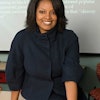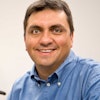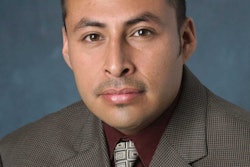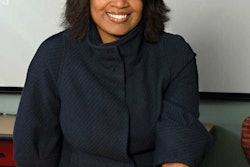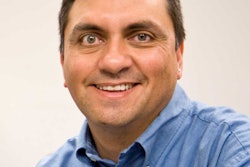When Dr. Yaohang Li's parents steered him as a teenager toward a computing career, it didn't douse any of his passion for laboratory sciences. In fact, it sparked a career in which he has merged the two.
His interdisciplinary research includes computational biology. Li, who has taught full-time since 2003, uses supercomputing to try impacting biological processes, which can result in breakthroughs in bio-energy development and the drug-design industry. The latter gives other scientists more tools to potentially fight disease.
Li has delved into protein-structure prediction and function, among other things. Proteins are essential, naturally occurring Parts of all living organisms. But sometimes, humans can change a protein's structure in ways that make it more likely to bond with new disease-fighting drugs, for instance.
Li inputs protein-sequence data into computers and simulates a series of physical and chemical conditions. He analyzes the resulting protein model in order to better understand the biological processes.
Ideally, his research can be used to develop new protein-modeling programs. Computational approaches can be more efficient and less expensive than biologists, chemists and others experimenting in lab settings, Li says. "Sometimes we can do in one day by computer what might require a couple of years in a lab. It feels good knowing I might make a contribution to human health."
Still, answers don't often come quickly by computer either. Because much remains unknown about the nanoscale interactions between proteins and other elements, even computational biology can sometimes require years of research in order to reach a set of conclusions, says Li.
A current project of Li's involves investigating computational approaches that can lead to the prediction of high-resolution protein structures with a level of accuracy and reliability not currently attainable. New protein modeling tools can eventually lead to the manufacturing of additional drugs to fight conditions as varied as Alzheimer's disease, cystic fibrosis and mad cow disease. Li has secured for this project a five-year, $400,000 CAREER Award from the National Science Foundation.
He has been the principal or co-principal investigator on research grants totaling more than $15.3 million.
Dr. Michael Mascagni, professor of computer science at Florida State University, praises Li for his "tremendous effort in looking for funding." The task has held an additional challenge because Li's English skills were limited until he honed them during graduate school. Formerly Li's dissertation adviser, Mascagni has since collaborated with his ex-student on journal articles, conference presentations and a book chapter.
"Too many academics chase their tails for funding," Mascagni says. "Yaohang has been diligent but savvy in what he sought. And he wisely deferred to people who have guided him in writing scientific English until he became fluent himself."
Li has taught courses such as Advanced Operating Systems, Database Design and Introduction to Grid Computing.
He also has conducted research at the Historically Black Colleges and Universities/Minority Education Institutions Faculty Summer Research Program at Oak Ridge National Laboratory, a multiprogram science and technology campus. There, his supercomputing projects have included statistical and mathematical work to try gleaning more knowledge of the biology behind ethanol production. Such knowledge can improve and make more efficient the production of ethanol, an alternative fuel.
Li, who idolized Albert Einstein as a child, chose an academic career rather than strictly conduct research because of the yearslong incubation tied to the latter. "We need a new generation of computer scientists and biologists to carry on," he says, referring to his students.
In 2005, he was named North Carolina A&T's "Rookie of the Year" Young Researcher. That year, he also won the Ralph E. Powe award for junior faculty in computer science and math from Oak Ridge Associated Universities, a consortium of doctorate-granting institutions.
Yaohang Li Title: Associate professor, computer science, North Carolina A&T State University
Education: Ph.D. and M.S., computer science, Florida State University; B. S., computer science and engineering, South China University of Technology
Age: 35
Career mentor: Michael Mascagni, Florida State University
What advice would you give newly minted Ph.D.s? "Work hard but be sure to enjoy life too!"


